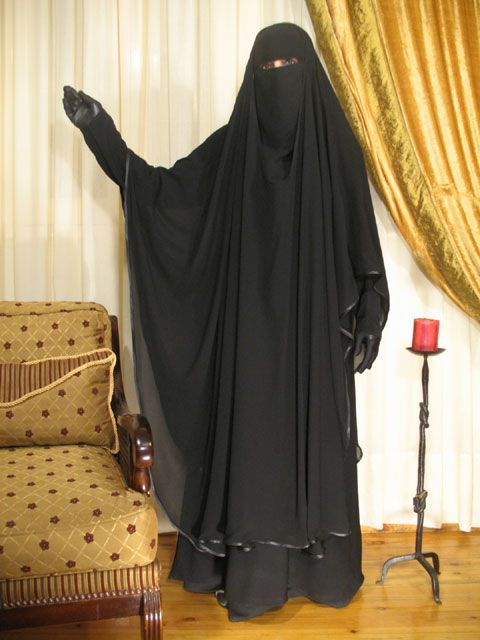by Hugh Fitzgerald

Al Jazeera reports that there is “no social backlash [in France] to anyone that holds Islamophobic views.”
“In March, a French woman wearing the hijab applied for a job at a lingerie shop, Etam, in the southern city of Montpellier.
“The woman, Oumaima, claimed her application was rejected because the manager told her veiled women would not be accepted.
“In a video posted on Twitter that has been viewed more than 240,000 times, Oumaima said she was a victim of racism and called for a boycott of the brand as she explained “how difficult it is to live, study, and work with a hijab in France.”
There are two separate reasons why it was perfectly legitimate for the manager of the shop to tell this hijabbed lady she would not be hired, as long as she insisted on wearing a hijab.
The first is the nature of the business.This was not a grocery store or a bakery but a lingerie shop. It is not “racism” for a lingerie shop to reject a hijab-wearing woman as a saleswoman. The nature of the product being sold — come-hither lingerie — clashes with the message of modesty that the hijab signifies. This was not an expression of “islamophobia” but a marketing decision. It was also a decision based on French law, which requires employees to show a ‘total neutrality” in their appearance.
.
That Muslim woman might well have been hired by Etam– as the manager ought to have said — if only she had not insisted on continuing to wear the hijab, so off-putting to potential customers, while at work.
“Etam reacted quickly, issuing a statement right away saying the incident “does not reflect its values.”
“The manager was sacked and Etam called Oumaima to apologise.
Fearful of boycotts, Etam surrendered quickly to the threats, and made the manager pay for what had been a perfectly reasonable business decision and, as we shall see, was also in accordance with the law. Etam ought to have explained that there was a perceived “clash of values” — a kind of dissonance –in having a hijabbed woman selling its lingerie.
But there is another, much more important justification for the manager’s refusal to consider Oumaima’s job application. Etam, in the statement in which it announced it had fired the manager, provides the very reason that justifies the manager’s decision. For it reminds us that there is another reason why that Muslim woman ought to have been required to remove the hijab.”Employees must maintain a “total neutrality” in their appearance, in conformity with the El Khomri law of 2016. But also according to French law, an employer may not refuse to employ someone simply because of their religious beliefs.” (“Etam rappelle que les employés doivent appliquer une « totale neutralité » dans leur apparence. Une disposition conforme depuis la loi El Khomri de 2016. Mais dans le droit, on ne peut pas refuser d’embaucher quelqu’un en vertu de ses croyances religieuses.’) There is not a contradiction here: the manager told the woman, who had come to leave off her C.V., that she would not be hired if she insisted on wearing the hijab at work. We do not know, from the reports, whether the manager also explained to her that she would not be considered, not because she was a Muslim, but because she would be violating the requirement, in the El Khomri law, for all employees to maintain a “total neutrality” in their appearance. That includes too-visible religious symbols. That should have been enough to end the matter. It might have headed off the subsequent expressions of Muslim fury and threats of a boycott, that led to the manager’s being fired.
Now one wonders if the fired manager will sue Etam for wrongful dismissal, because all she was doing was following the legal requirement of “total neutrality” in the appearance of employees. And even if that law were for some reason held not to apply, there remains the question of a “business decision” that ought to be raised. Can the nature of a business (in this case, a lingerie shop) be taken into account in determining the suitability of a given job applicant? Consider this hypothetical: a French woman, unhijabbed and wearing slacks, applies for a job at a halal grocery. Shouldn’t the halal grocery have a right not to hire her, as someone whose appearance would be predictably disruptive for customers? How does that hypothetical differ in principle from the real case of the lingerie shop in Montpellier? It doesn’t.
First published i Jihad Watch.







